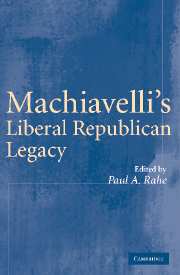Book contents
PART II - THE MODERATE ENLIGHTENMENT
Published online by Cambridge University Press: 24 July 2009
Summary
Events are sometimes dispositive – even with regard to political thought. On 13 August 1704, just such an event took place, one little remembered today, and less often discussed – though it signaled a political and an ideological transformation that was arguably no less significant than the one marked in our own time by the fall of the Berlin Wall and the dismemberment of the Soviet Union.
In the late spring and summer of that fateful year, two armies made their way from western to central Europe. The first, led by the comte de Tallard, marshal of France, aimed at upsetting the balance of power in Europe; at establishing Louis XIV's hegemony over the Holy Roman Empire by installing a French nominee on its throne; and at securing the acquiescence of the Austrians, the English, the Dutch, and every other European power in a Bourbon succession to the Spanish throne. The second army, led by John Churchill, then earl, later duke of Marlborough, with the assistance of Prince Eugene of Savoy, sought to preserve the existing balance of power, defend Hapsburg control of the imperial throne, and deprive Louis of his Spanish prize.
At stake, so nearly everyone supposed, was the establishment of a universal monarchy in Europe and French dominion in the New World, and there was every reason to suppose that Louis would achieve this goal, which had been the object of his ambition during the entirety of his adult life.
- Type
- Chapter
- Information
- Machiavelli's Liberal Republican Legacy , pp. 87 - 93Publisher: Cambridge University PressPrint publication year: 2005
- 1
- Cited by

